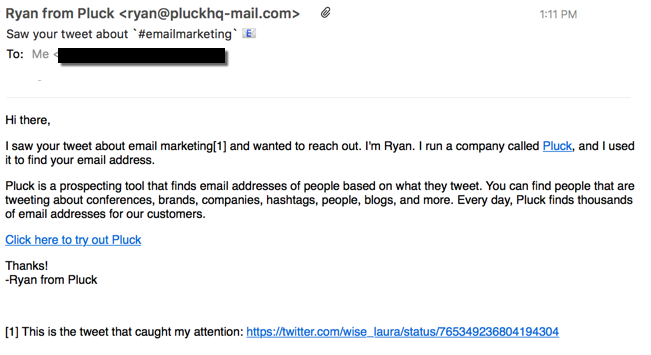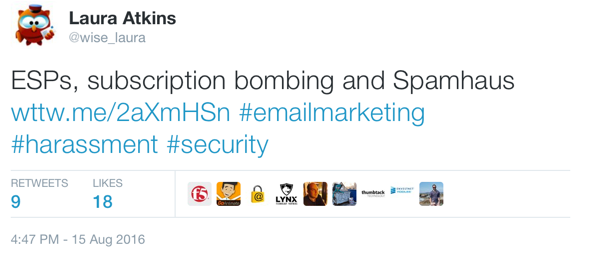Opting out of “service” messages
- laura
- October 16, 2019
- Best practices
A frequent question in a number of deliverability spaces is how to tell if a message is transactional or marketing. In most cases the decision is related to whether or not to respect an unsubscribe request. All too often companies decide that their messages are too important to allow someone to opt-out of. The problem is, in some cases, there is no longer a customer relationship to send notices about.

This came up because it’s been just about a year now since I unsubscribed from most of my US based commercial lists. (Yes, we’ve been in Dublin more than a year now!). Because it’s been a year I’m getting a lot of “transactional” messages. Many of them are reminding me to log into my account to see my current rewards level. Others are offering me coupons if I come back.
These aren’t transactional messages, they have nothing to do with any transactions I’ve made. They’re spam, plain and simple. They violate CAN SPAM, as I have opted out from mail from those companies. I’ve not made any purchases from those companies in more than a year.
But, I’ve seen first hand how marketing departments justify emails like this as ‘transactional.’ This is also the time where they start talking about the 80/20 rule that some spammer made up to justify calling their marketing mail spam. Then they don’t let you actually opt-out of this message because they’re “account messages.”
I can’t actually affect delivery of this kind of mail as I’m not at one of the commercial providers. But, if I were, you can bet I’d be reporting each and every one of these messages as spam. Even if it only taught the provider to put this mail in my spam folder, it’s still better than getting mail that I have asked to no longer receive but am still receiving.
Seriously, marketers, at some point you’re going to have to stop biting the apple. When recipients tell you to stop mailing them, take that as an instruction that you should stop mailing them. Continuing to mail people who’ve opted out only injures your reputation and your overall delivery.

